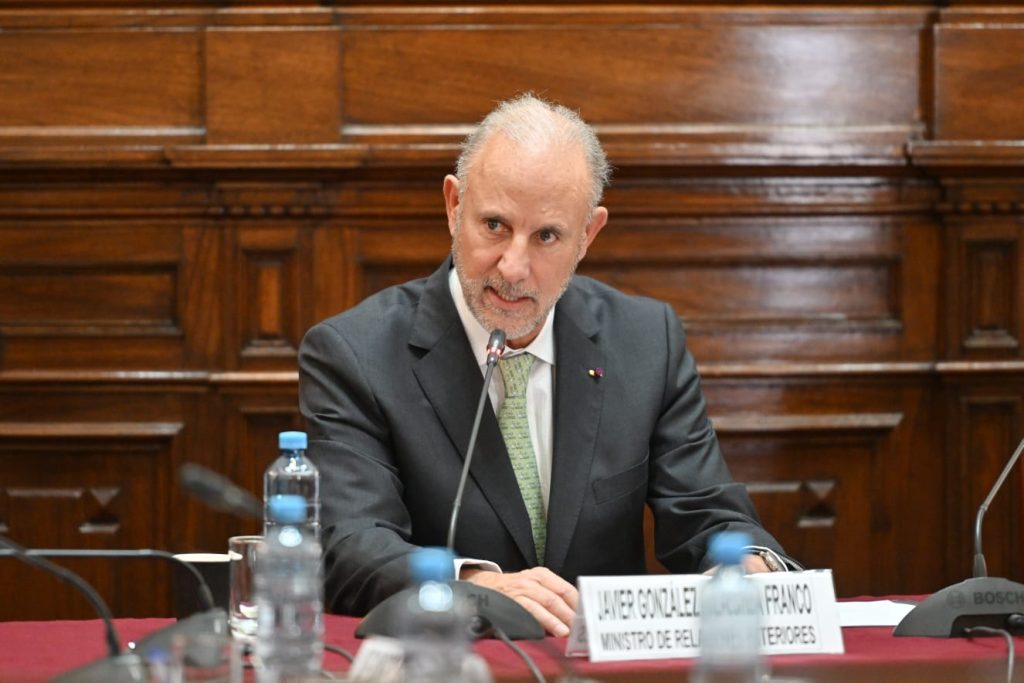Pastor Ezequiel Molina’s speech, within the framework of the Battle of Faith, about the “neglect of homes and the success of women” continues to generate rejection from the sector, such as the Forum of Dominican Women Journalists, who describe the speech as “an act of symbolic violence towards women.”
“We describe the stereotypical speech of Pastor Ezequiel Molina, delivered on January 1, as the first act of symbolic violence of 2025. This speech is anachronistic and lacks current contextual data about the truth of the homes and citizens of the country” condemns the union through a statement.
They explain that in Dominican homes the leadership of women prevails, who with success and empathy are committed to their multiple work days. «They are the ones who lead the leadership of these spaces, representing 53% of the households, being mostly single, and they build it as the best of their companies. The most important of all! add the note.
Release
It details that more than 600 women own companies that export more than 1,400 products, which benefit both their households and those of many other women; Furthermore, they direct 52.6% of the MSMEs, They fight for representation on business boards and make important contributions to business groups.
It must also be remembered that they constitute 60% of university enrollments and 55% of technical education enrollments, without this meaning that they are separated from care work. Given this panorama, the speech issued constitutes an act that seeks to stop and place more barriers to the growing autonomy and empowerment of our women, which has had a positive impact on the entire society, starting with their homes.
In fact, 48.2% of the loans in the financial system are requested by women, who use them for their ventures and for their education and that of their sons and daughters, showing a perennial responsibility towards the best of futures.
This speech reminds us that precisely a century ago, Dominican women bravely faced opinions like these that feared their professionalization, their autonomy and their leadership, predicting that by pursuing technical and university careers their homes would be “devastated”; but, on the contrary, it is this fight for their education, that of their mothers, friends and sisters, that established our pioneers as citizens, from a moral point of view, to later achieve political and civil citizenship. And, on that journey, now
moves towards the constitution of their economic and social rights.
It is unfortunate that the pastor places this false news in the public opinion at the beginning of the year, and it is even more regrettable when the comments “backrests”, mostly broadcast on social networks, echo.
In both cases they are symptoms of the urgent need for a great national dialogue on the state of the civil and political rights of Dominican women today, which leads towards a reform of the educational system from the perspectives of human rights and gender; be sincere and take forceful actions against femicides and pregnancy in girls and adolescents, sovercoming bad practice
justify the crimes of sexist violence and rapists. It is also essential that policies be adopted that promote and support the creation of co-responsible households, between men and women.
This speech also reveals the plagues that plague workplaces, such as sexual harassment, the glass ceiling, the cement floor, and the imposter syndrome. Situations that are having a negative impact on the well-being of Dominican women who establish themselves economically.
If this discourse of nonsense is of any use, it is in demonstrating the urgency of creating conditions of equal opportunity for women who carry triple burdens, instead of judgments in the light of ignorance, in this quarter of a century.
Where are the work-life balance policies? They must stop being successes of few work spaces. Will these policies also be denied to Dominican women, such as the right to sexual and reproductive health?
Certainly, Dominican women are successful in public life, against all odds, but they also need structural evils – and not the poorly pointed out “individual” evils of the pastor – to be corrected by the entire society, such as the cost of the family basket, insecurity, sexual violations, drug sales and jobs that do not guarantee rights.
These are plagues that the pastor should have made visible in his misguided speech, but we are facing an anachronistic church, which seeks to increase the vulnerability of women to violence, curbing their autonomy, and asks its “handmaids” to stay at home. to wait for their husband to hit them, cheat on them or denigrate them, just so as not to neglect the home they have imagined.
We advocate for a church that does not punish women who prepare to be successful and thereby give a worthy example to their daughters and sons. For a church that no longer privileges men who leave home, and at the same time, their daughters and sons. A church of justice, of equity.
You may be interested in reading: Dominican journalists advocate for more prevention, protection and punishment against gender violence















